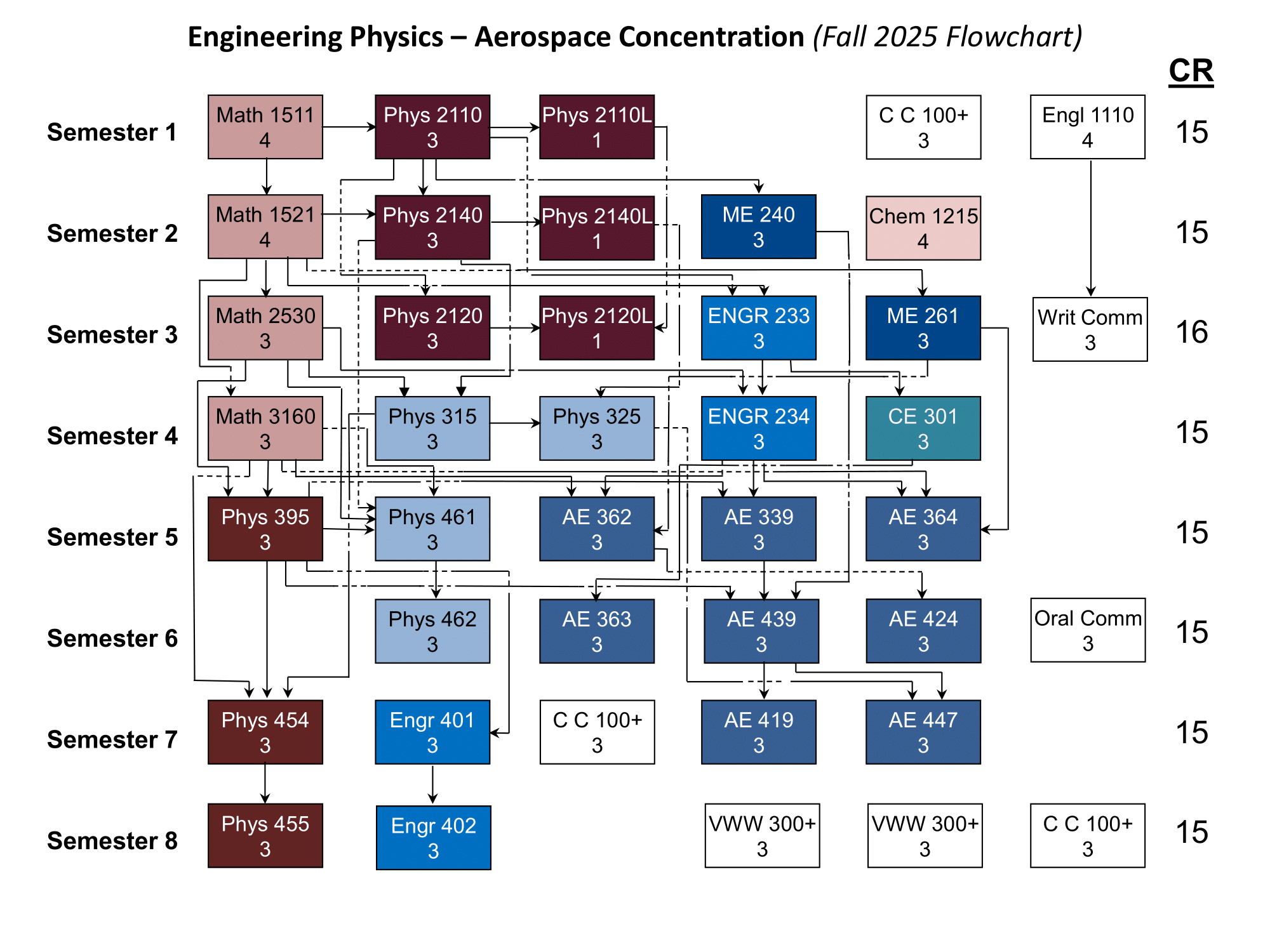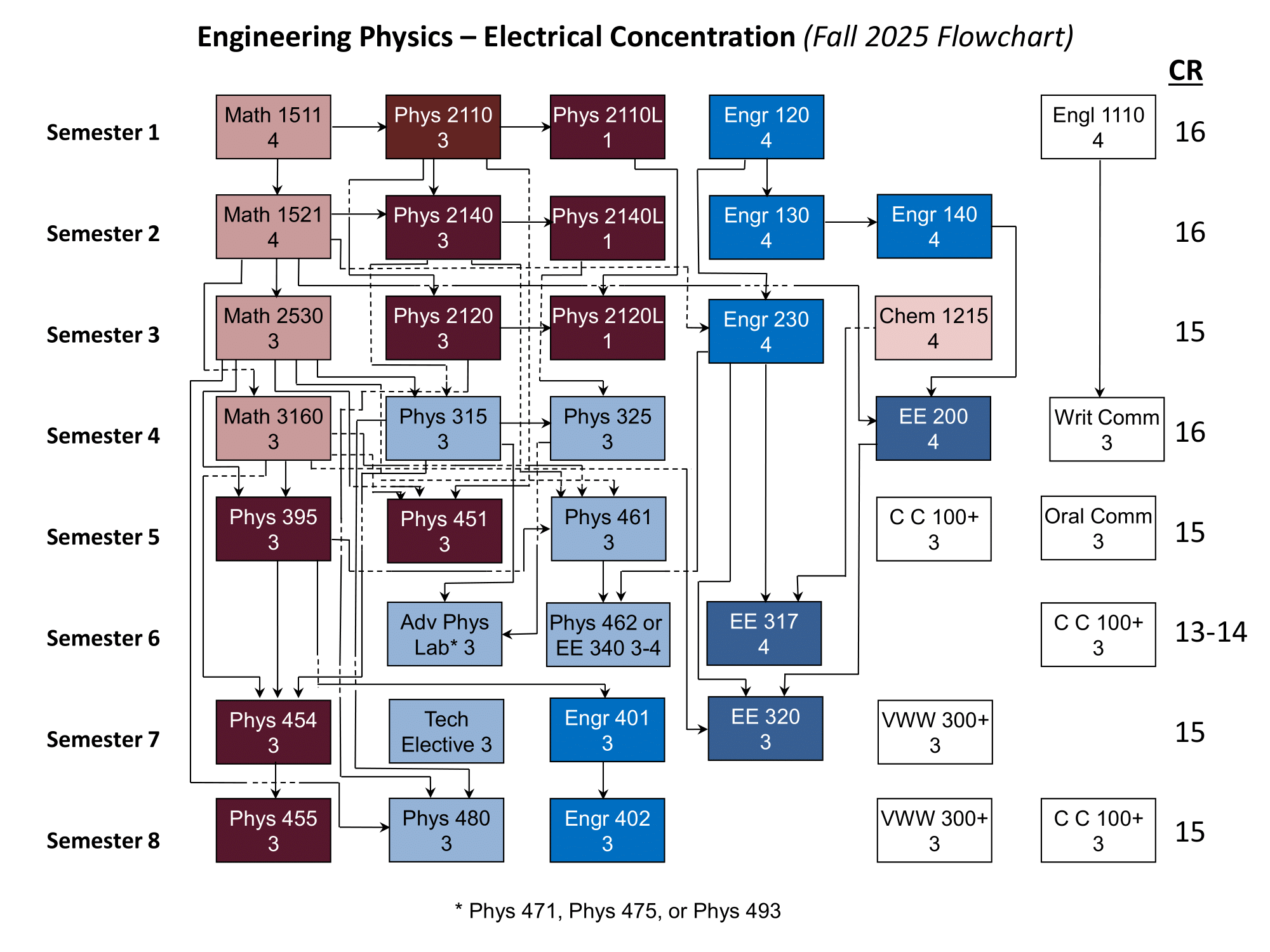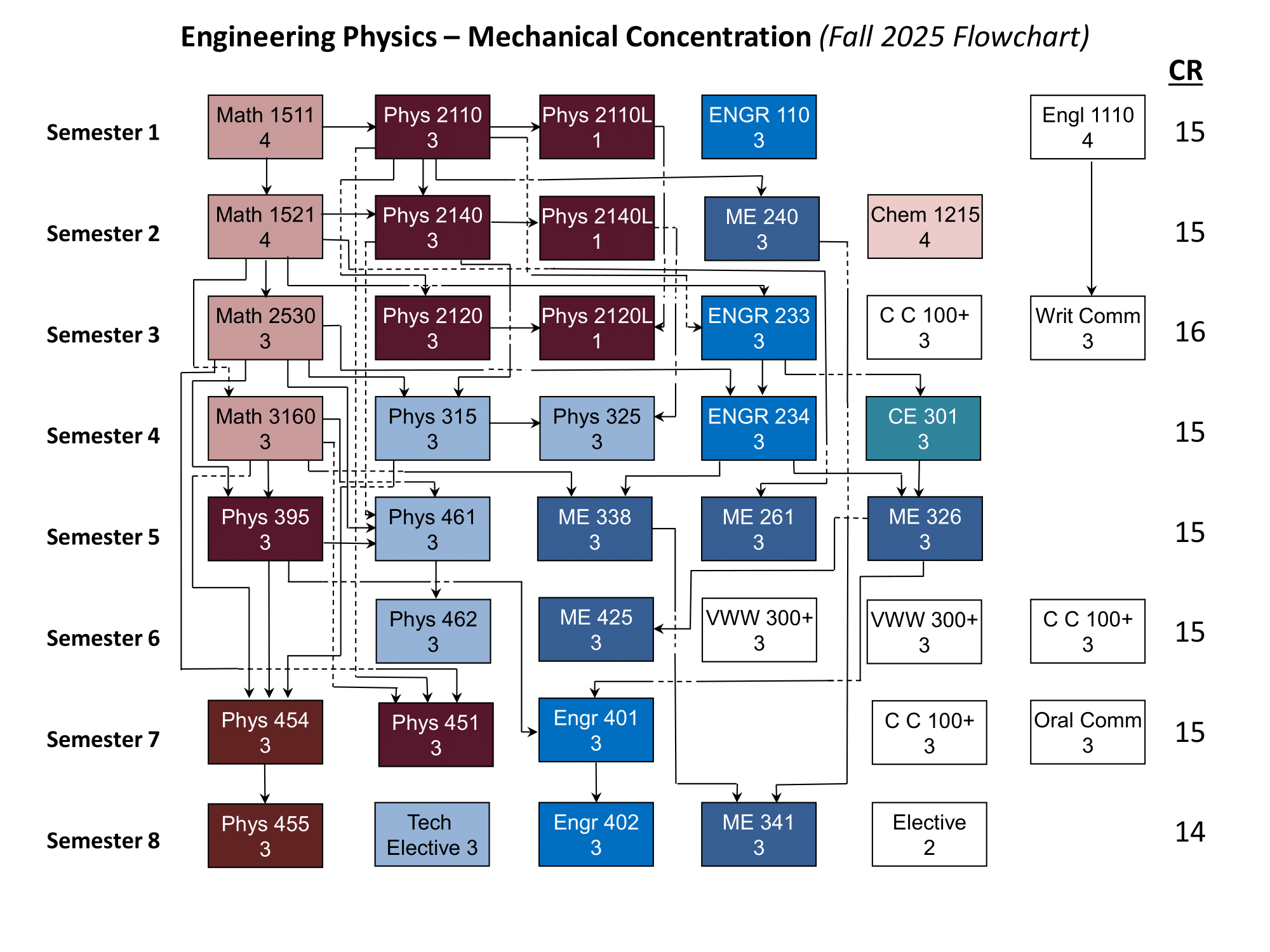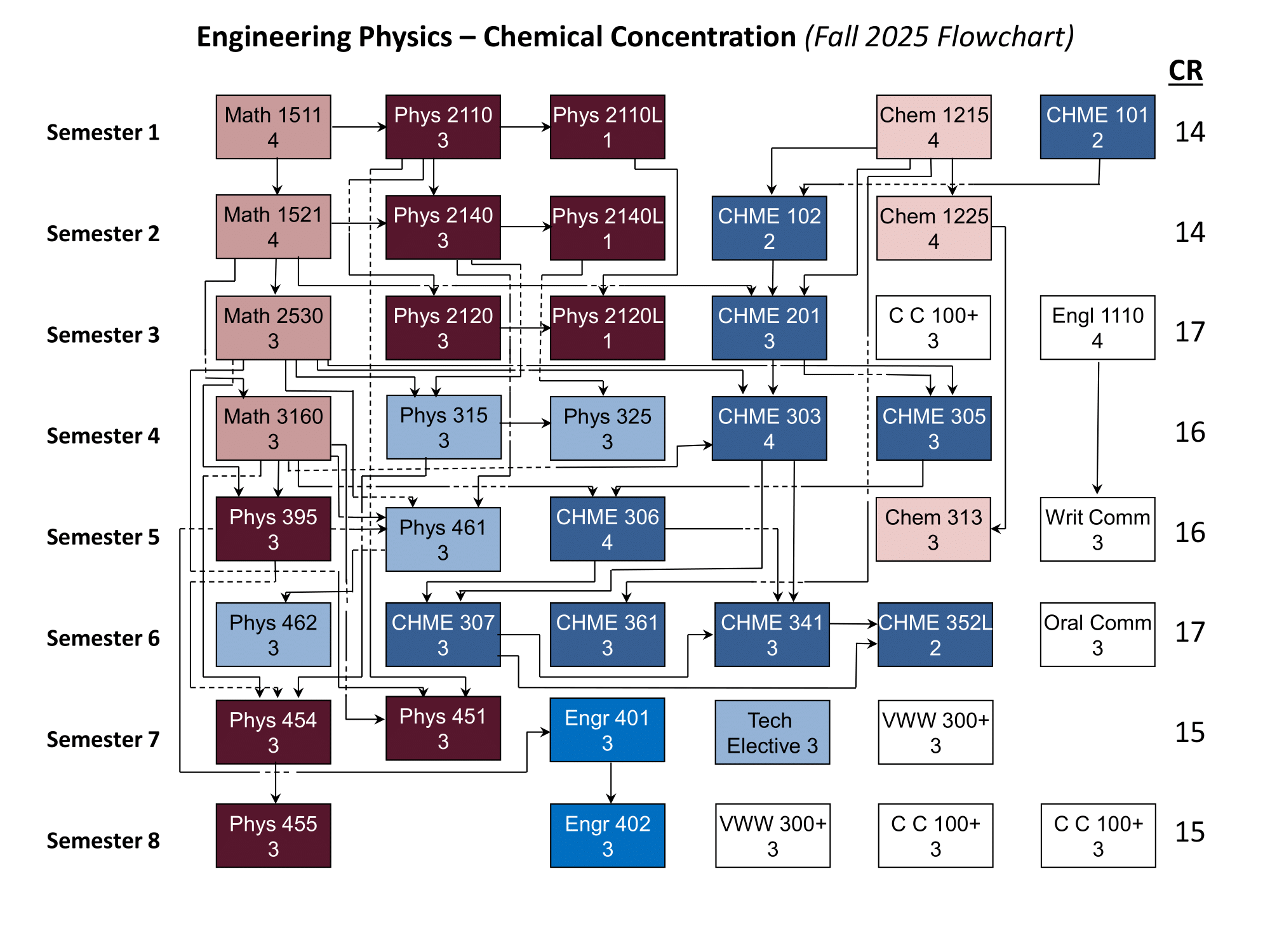Contact person: Dr. Boris Kiefer
Who is your academic advisor? You can easily find this out at my.nmsu.edu. Login there, and then go to Student Information.
The academic advisors for the Physics E.P. programs are Boris Kiefer and Michael Paolone.
The Physics Department and the College of Arts and Sciences, in coordination with the College of Engineering, offer four interdisciplinary degree programs in Engineering Physics.
- Engineering Physics with a concentration in Aerospace Engineering
- Engineering Physics with a concentration in Chemical Engineering
- Engineering Physics with a concentration in Electrical Engineering
- Engineering Physics with a concentration in Mechanical Engineering
Engineering Physics at NMSU is the only engineering physics degree program in New Mexico and in the Southwest. It is for students who want both to understand the fundamentals of physics and also apply science and math to real-life technical problems. Cooperative education and internship possibilities can give students hands-on work experience, which is important for students who want employment immediately after graduation.
Our Mission
The mission of the Engineering Physics program at New Mexico State University is to offer an accredited degree that combines high-quality engineering and physics programs to best prepare our graduating students for careers in state-of-the-art industry or to move on to advanced study in engineering or physics.
Program Educational Objectives of the Engineering Physics Program at New Mexico State University
Educational Objective 1: Competitiveness
Graduates are competitive in internationally-recognized academic, government and industrial environments.
Educational Objective 2: Adaptability
Graduates exhibit success in solving complex technical problems in a broad range of disciplines subject to quality engineering processes.
Educational Objective 3: Collaboration/Teamwork and Leadership
Graduates have a proven ability to function as part of and/or lead interdisciplinary teams.
Review of the Program Educational Objectives is performed by the EP External Advisory Board, at least once every two years.
The Engineering Physics BS Program is accredited by the Engineering Accreditation Commission of ABET, under the General Criteria and the Program Criteria for Engineering, General Engineering, Engineering Physics, Engineering Science, and Similarly Named Engineering Programs. This accreditation means that our students achieve the following outcomes at the end of the program.
- an ability to identify, formulate, and solve complex engineering problems by applying principles of engineering, science, and mathematics
- an ability to apply engineering design to produce solutions that meet specified needs with consideration of public health, safety, and welfare, as well as global, cultural, social, environmental, and economic factors
- an ability to communicate effectively with a range of audiences
- an ability to recognize ethical and professional responsibilities in engineering situations and make informed judgments, which must consider the impact of engineering solutions in global, economic, environmental, and societal contexts
- an ability to function effectively on a team whose members together provide leadership, create a collaborative and inclusive environment, establish goals, plan tasks, and meet objectives
- an ability to develop and conduct appropriate experimentation, analyze and interpret data, and use engineering judgment to draw conclusions
- an ability to acquire and apply new knowledge as needed, using appropriate learning strategies.
Below are typical four-year schedules for each of the Engineering Physics concentrations.
NOTE: MATH 392 Intro to Ordinary Differential Equations has been renumbered to MATH 3160; other MATH courses have also transitioned to 4-digit numbers.




